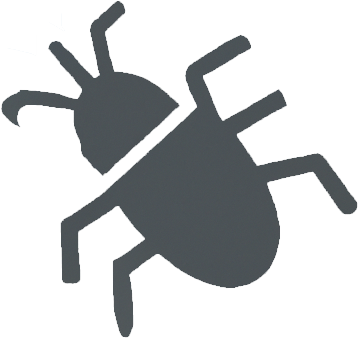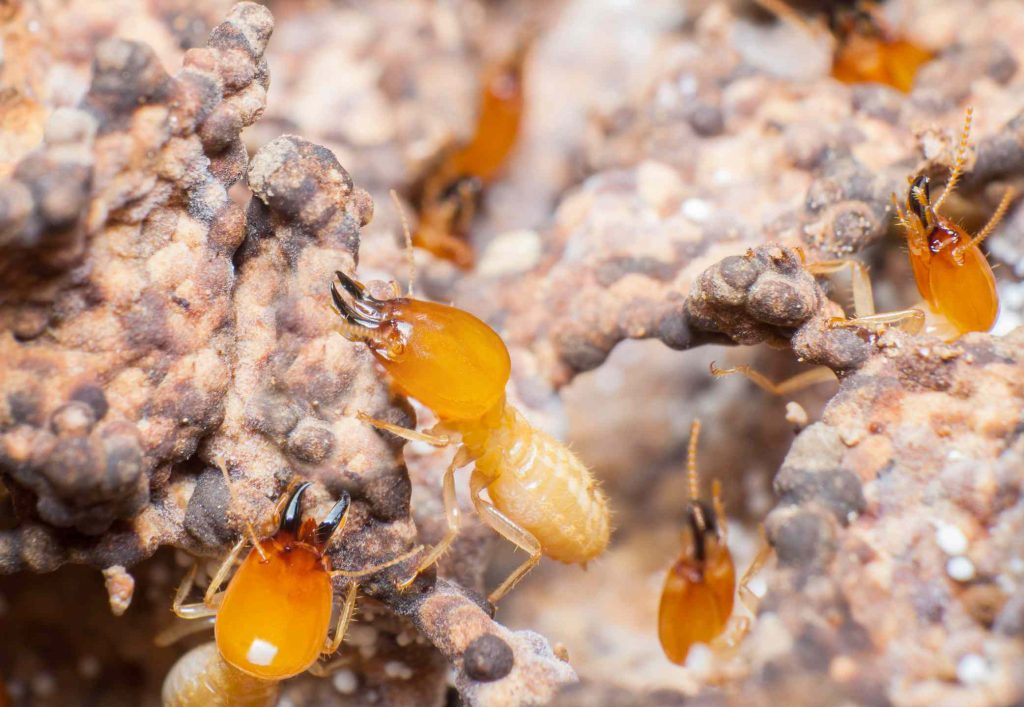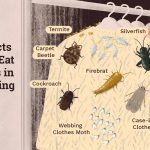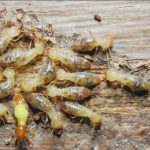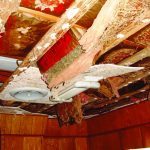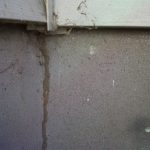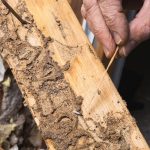Termites can be a real nuisance for homeowners, causing significant damage to wood structures. Fortunately, there is a natural way to protect your home from termites: cedar mulch. This article will explain the benefits of using cedar mulch to help keep termites away from your home.
Overview of Termites
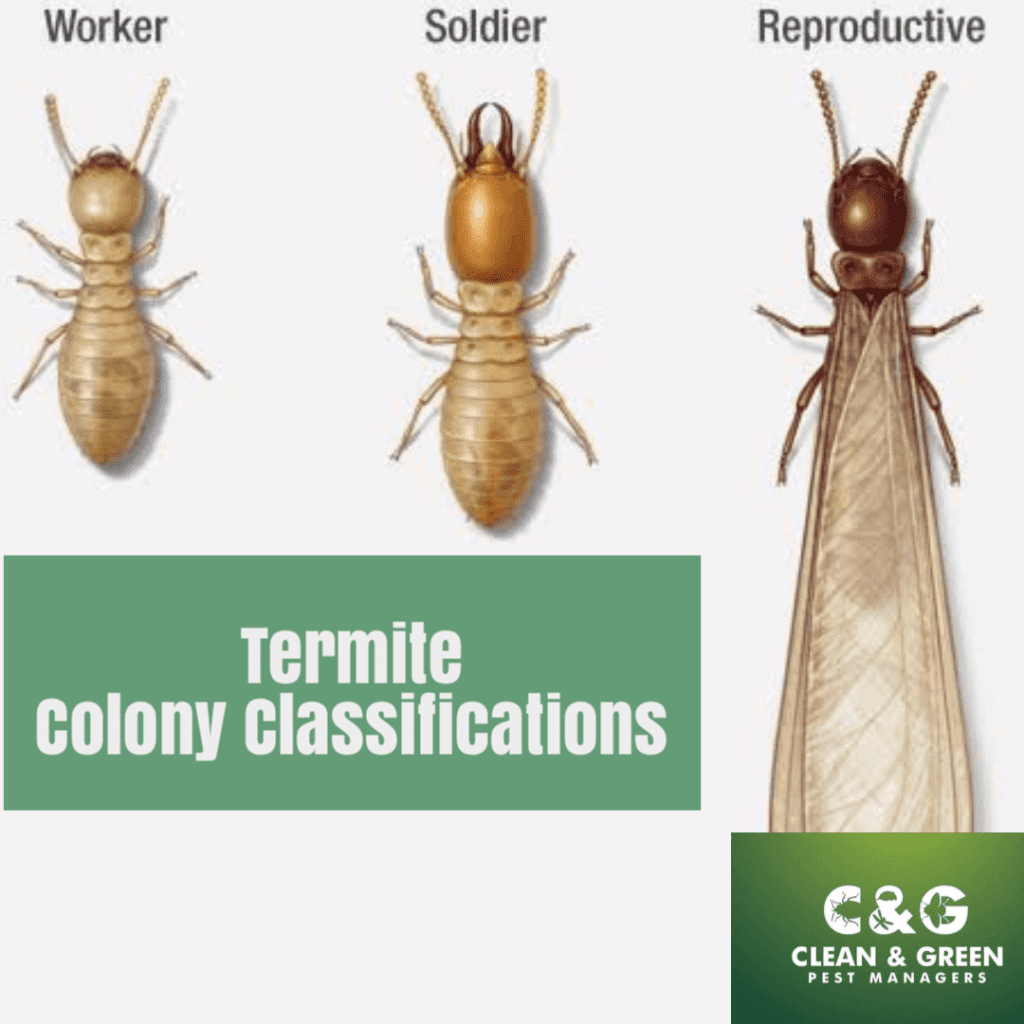
Termites are small, white, ant-like insects that feed on cellulose found in wood, paper, and other plant material. They live in large colonies, often found in the ground or in wood. Termites can cause extensive damage to homes and other structures by eating the wood, paper, and insulation in walls. They can quickly cause thousands of dollars in damage if left unchecked. Termites are often mistaken for ants, but they have several distinct characteristics that set them apart. Termites have two sets of wings, while ants only have one. Termites also have straight antennae, while ants have elbowed antennae. Termites are also much smaller than ants and have a soft, white body.
Types of Wood Termites Prefer
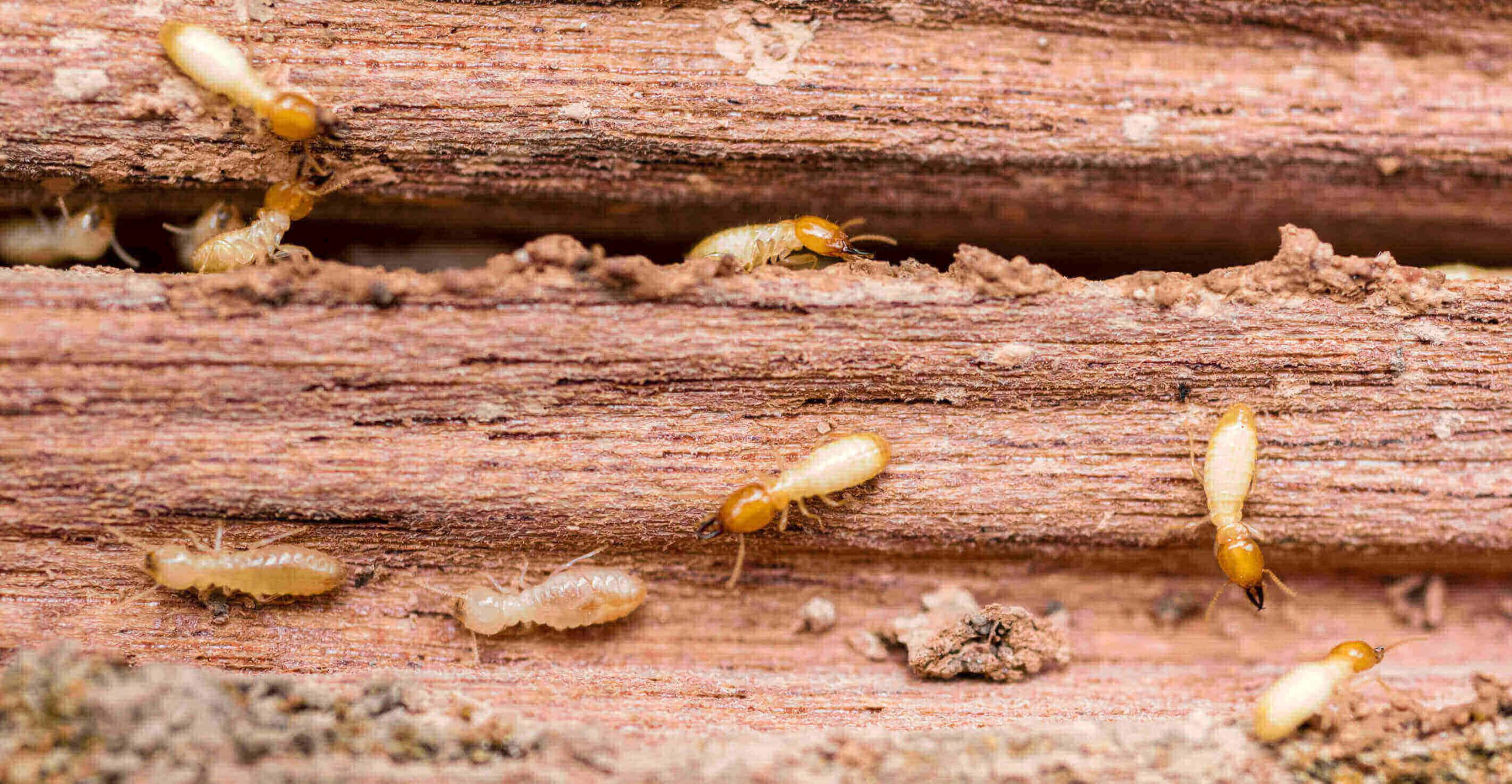
Termites feed on cellulose-based plant materials, such as wood, paper and cardboard. They prefer softwoods, such as pine, fir, cedar, redwood, and cypress, over hardwoods, such as oak, ash and maple. Softwoods have more cellulose and are easier for termites to digest.
| Softwoods | Hardwoods |
|---|---|
| Pine | Oak |
| Fir | Ash |
| Cedar | Maple |
| Redwood | |
| Cypress |
Does Cedar Mulch Attract Termites?
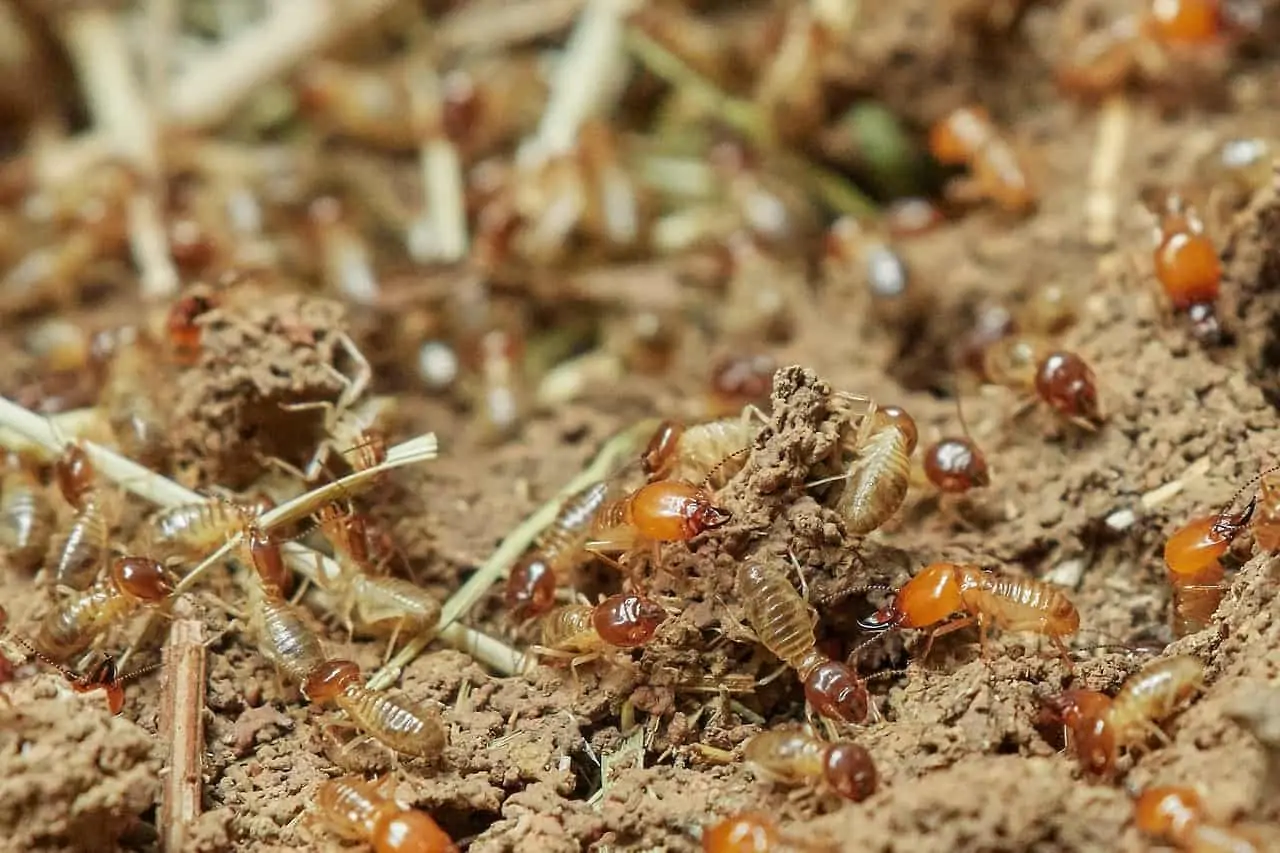
- Cedar mulch contains natural oils that can repel termites and other pests.
- The oils in cedar mulch are toxic to termites and can help to prevent them from taking up residence in your yard.
- Cedar mulch can also help to reduce the moisture levels in the soil, which can make it less hospitable for termites.
- However, cedar mulch may not be enough to completely prevent termites from entering your property, as they can still enter through other means.
- It is still important to inspect your property regularly and take steps to reduce moisture levels and other factors that can attract termites.
The Benefits of Cedar Mulch
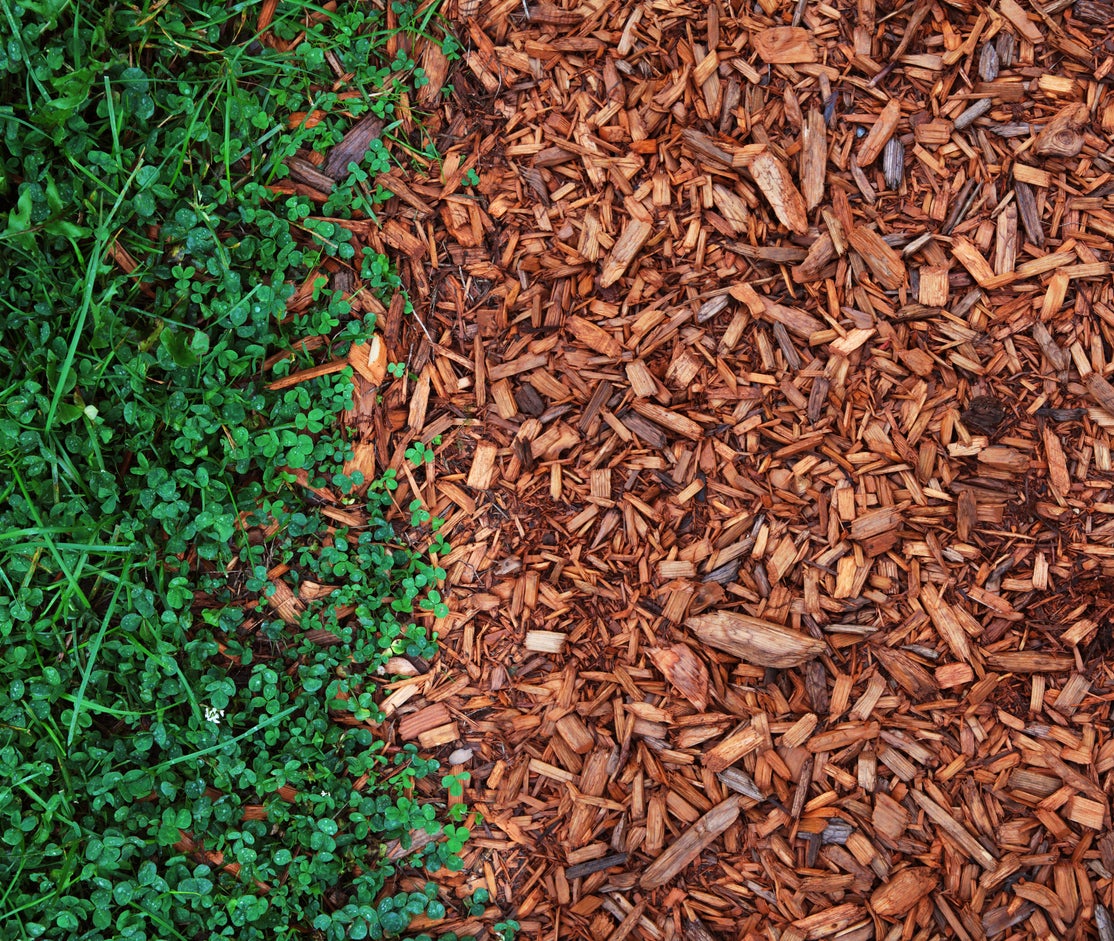
| Benefit | Description |
|---|---|
| Insect repellent | Cedar mulch is an effective repellent for many insects, including termites. It produces a natural insect repellent that is non-toxic to humans. |
| Organic matter | Cedar mulch is composed of organic matter that helps to enrich the soil and improve drainage. It also retains moisture, making it an excellent soil amendment. |
| Weed suppression | Cedar mulch helps to suppress weed growth, as it prevents weed seeds from germinating. It also prevents the spread of invasive weeds. |
| Aesthetic appeal | Cedar mulch is aesthetically pleasing, as it has a pleasant smell and attractive color. It can be used to add visual interest to any garden or landscape. |
| Long-lasting | Cedar mulch is long-lasting, as it is slow to decompose. This means that you can use it for several years before needing to replace it. |
Cedar mulch is a great choice for any garden or landscape. It is an effective insect repellent, helps to enrich the soil, suppresses weed growth, and adds aesthetic appeal. It is also long-lasting, so it can be used for several years before needing to be replaced.
The Disadvantages of Cedar Mulch
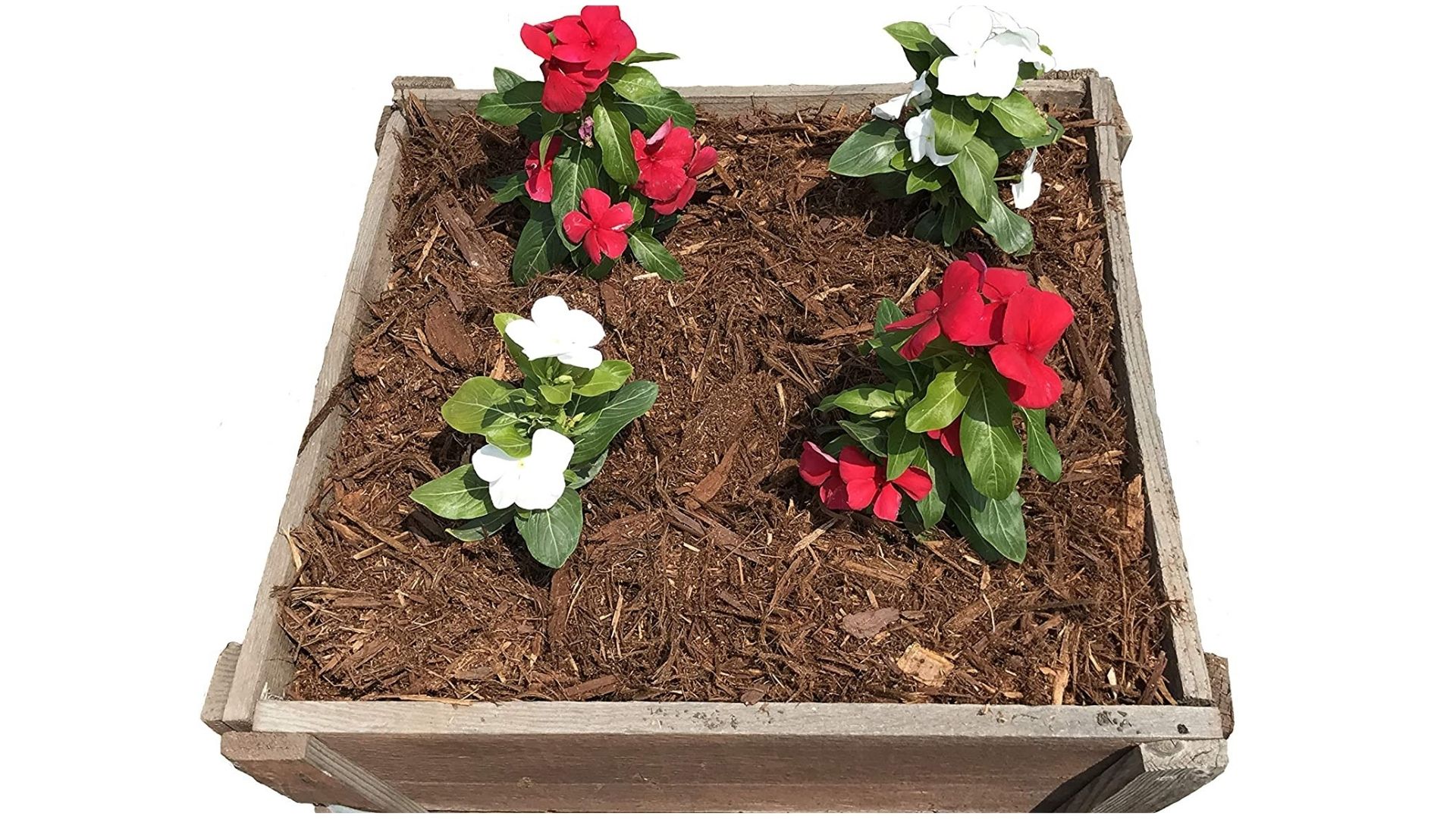
- Cedar mulch is not recommended for use around acid-loving plants such as azaleas, rhododendrons, and blueberries.
- Cedar mulch can be expensive compared to other types of mulch.
- Cedar mulch may contain allergens that can cause reactions in some people.
- Cedar mulch may contain natural oils that can be toxic to pets.
- Cedar mulch may be washed away in heavy rain.
- Cedar mulch may need to be replaced more often than other types of mulch.
Alternatives to Cedar Mulch
When looking for an alternative to cedar mulch, there are a few options available. These can range from organic to inorganic materials, and each has its own advantages and disadvantages.
| Material | Advantages | Disadvantages |
|---|---|---|
| Organic Mulch | Organic mulches are biodegradable and help to improve soil fertility. Additionally, they can retain moisture and prevent weeds. | Organic mulches can be more expensive than inorganic options and can attract pests such as termites. |
| Inorganic Mulch | Inorganic mulches are less expensive than organic options and are less likely to attract pests. Additionally, they can help to improve drainage and water retention. | Inorganic mulches are not biodegradable, and they can be less aesthetically pleasing than organic options. |
| Stone Mulch | Stone mulch is a more durable option than organic or inorganic mulches. Additionally, it can provide a neat and tidy look and does not require frequent replacement. | Stone mulch can be more expensive than other types of mulch and can be difficult to install. |
When choosing an alternative to cedar mulch, it is important to consider the type of material, the cost, the aesthetic appeal, and the maintenance requirements. Additionally, it is important to consider the potential for attracting pests, such as termites.
Preventative Measures to Reduce Risk of Termites
To reduce the risk of termites, it is important to inspect the area periodically, especially during the spring and summer months when termite swarms are most active. Regularly inspect wood and other cellulose materials for signs of termite infestation, such as discarded wings, fecal pellets, or mud tubes.
To further reduce the risk of termites, it is important to eliminate any potential sources of moisture. This includes repairing any plumbing leaks, correcting drainage issues, and keeping the area well-ventilated. Additionally, eliminate any sources of food for termites, such as wood piles, stumps, and old logs.
When using cedar mulch, it is important to keep the mulch layer thin and away from the foundation of your home. Cedar mulch is a natural deterrent to termites, however, its effectiveness is limited if the mulch is too thick or too close to the foundation of your home.
Finally, keep your home’s foundation in good condition. This includes sealing any cracks or gaps in the foundation and repairing any damaged siding. Additionally, consider installing a termite barrier along the perimeter of your home. This barrier can help prevent termites from entering your home and reduce the risk of infestation.
Frequently Asked Questions
What are the benefits of using cedar mulch to protect from termites?
Cedar mulch is a natural pest repellent and termite deterrent, as it contains a high concentration of aromatic oils that can repel and even kill termites. It is also non-toxic and safe for use around children and pets. Cedar mulch also keeps soil moist and cool, which can help reduce the risk of termites nesting in or near the mulched area. Additionally, it breaks down slowly, providing long-term protection.
How often should cedar mulch be replaced to remain effective against termites?
Cedar mulch should be replaced once every 3-4 years to maintain its effectiveness against termites. After this period of time, the natural oils released from the cedar mulch will have dissipated, reducing the mulch’s ability to repel insects. Adding new cedar mulch will restore the repellency, protecting plants and structures from termites.
Are there any special instructions for installing cedar mulch to protect against termites?
When installing cedar mulch to protect against termites, it is important to spread a thick layer of mulch, at least 4 inches deep, around the foundation of the home. Cedar mulch should also be kept away from the home’s siding and at least 12 inches away from any wood structures. Cedar mulch should be replenished every 1-2 years to ensure protection against termites. Additionally, it is recommended to treat with a termite repellent before installing the cedar mulch.
Is there a way to tell if cedar mulch is still effective against termites?
Cedar mulch can be an effective barrier against termites as its scent masks the smell of wood. To tell if it is still effective, inspect the mulch for signs of degradation, such as discoloration, small holes, or a lack of smell. If any of these signs are present, it is time to replace your cedar mulch. Additionally, ensure the mulch is always free of standing water, as this can attract termites.
How can cedar mulch be used to help prevent termite infestations?
Cedar mulch acts as a natural termite repellent due to the presence of cedar oil in cedar wood. When applied around the foundations of your home and garden, it creates a barrier that termites find difficult to penetrate due to the strong aroma of the cedar oil. This can help to prevent termite infestations and protect your home and garden from damage caused by termites.
Conclusion
Cedar mulch is a great natural way to protect your home from termites. Its natural resins and oils make it an effective repellent against termites, and its use can help reduce the chances of an infestation in your home. Cedar mulch is also easy to maintain and is a renewable resource. Additionally, it is aesthetically pleasing and can be used to help enhance the beauty of your outdoor area.
